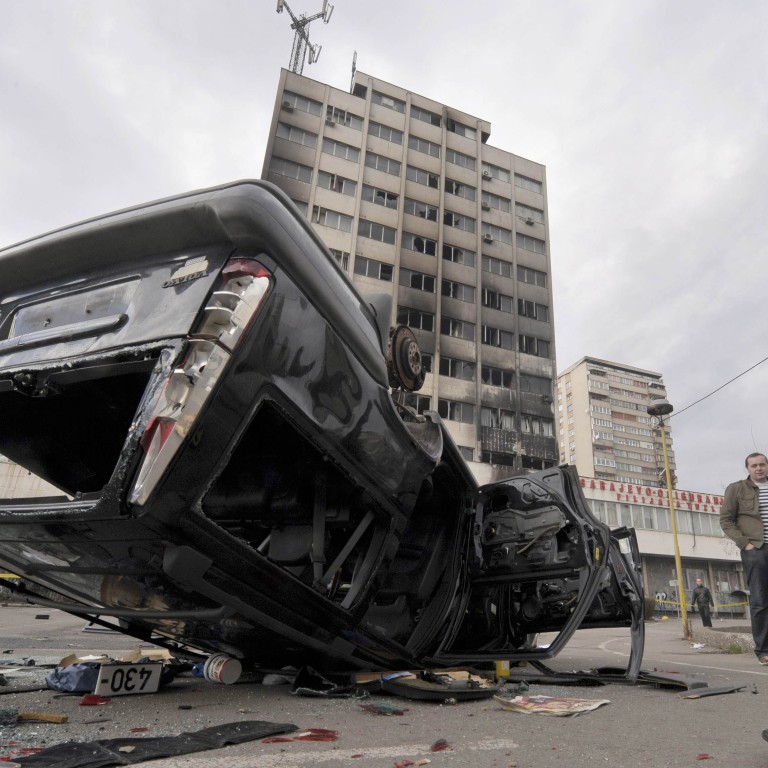
Update | Buildings burn as Bosnians erupt in protest over state of economy
Long-simmering anger over unemployment and political inertia has citizens take to the streets
The acrid smell of smoke hung over Bosnia's capital yesterday after rampaging protesters set fire to government buildings in countrywide riots that left more than 150 injured.
Sarajevo's streets were calm after firemen spent the night dousing the flames which almost gutted one regional government building, consuming cars and newsstands nearby.
The city is bracing itself for further protests today after three days of demonstrations over the dire state of the Balkan country's economy.
Police had used rubber bullets and tear gas to disperse the protesters in the capital, where a presidential office was also set ablaze. Protests also turned violent in the northeastern town of Tuzla, southern Mostar, the central town of Zenica and northwestern Bihac, where local government offices were stormed.
The protests reflect growing despair over the state of the economy with unemployment standing at 44 per cent and where one in five people live below the poverty line.
Many of those injured on Friday were policemen, emergency services chief Softic Taljanovic said.
"This is so sad, to see the towns ablaze less than 20 years after living through another hell," Jasminka Fisic, an unemployed resident of Sarajevo, referring to country's bloody 1992-1995 interethnic war that left 100,000 dead.
Protesters, many of whom heeded calls on Facebook to take to the streets, chanted "Thieves!" and "Revolution!"
Observers could point to no single cause for the protests, which started on Wednesday in Tuzla and spread to towns and cities across the country.
"I think this is a genuine Bosnian spring. We have nothing to lose, there will be more and more of us in the streets, there are around 550,000 unemployed people in Bosnia," said Almir Arnaut, an unemployed economist and activist from Tuzla.
The unrest is unprecedented in post-war Bosnia, where Serbs, Croats and Muslim Bosniaks have tolerated political stagnation for years rather than risk a return to conflict.
Bosnia's recovery has been held hostage to an unwieldy power-sharing system based on ethnic quotas set in the US-brokered peace deal that ended the bloody war.
Ethnic politicking has stymied governance and left the country trailing ex-Yugoslav peers on the road to membership of the European Union. Neighbouring Croatia joined last year.
"What is happening is what was long expected to happen. If some people need to resign, they should resign," said Zeljko Komsic, the Croat member of the country's tripartite presidency.
The government held an emergency session and called on protesters to negotiate.
"As long as there are ethnic divisions, deeply rooted corruption and nepotism there will be no solution for this society," political analyst Gojko Beric said.
Most protesters blamed politicians for the lack of economic growth in the country.
Beset by government corruption, Bosnia is among the poorest countries in Europe, with an average monthly salary of €420 (HK$4,400). Unemployment is at 44 per cent, according to the official Agency for Statistics.

